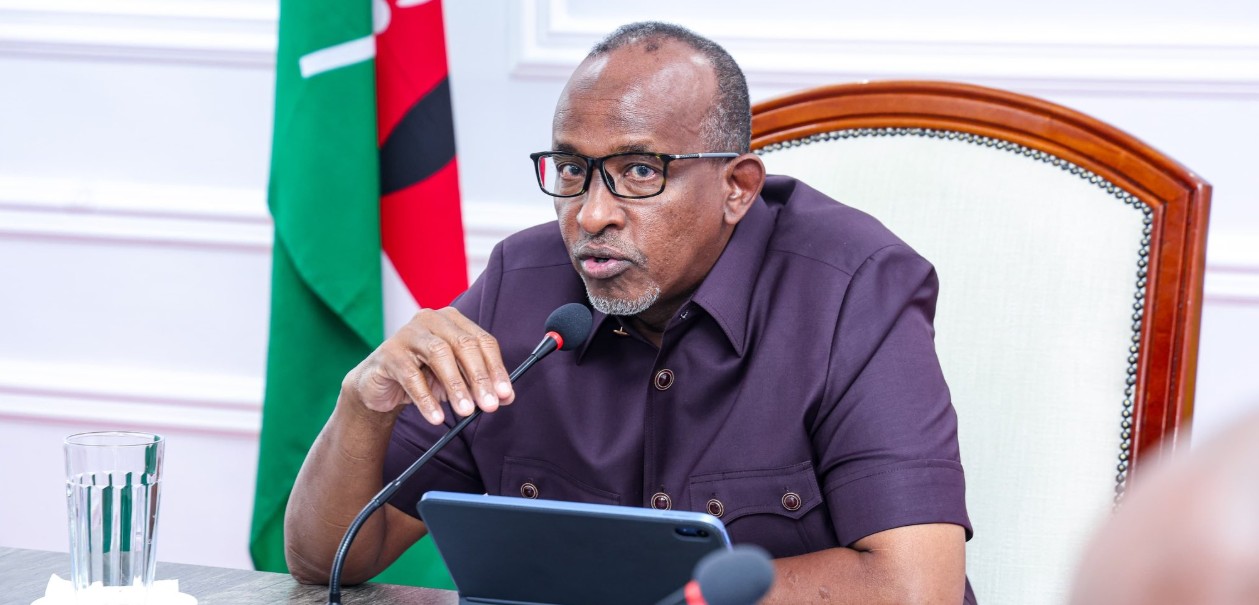Health CS Duale cracks down on hospital overcrowding, demands accurate bed capacity data

Duale also emphasised that any facility intending to admit more patients must first expand its physical infrastructure—such as beds and space—to accommodate the increased numbers.
Hospitals across Kenya have been directed by the Ministry of Health to submit accurate records of their bed capacities to the Kenya Medical Practitioners and Dentists Council (KMPDC) immediately. The move aims to address overcrowding and improve patient care nationwide.
The directive comes just days after the ministry warned hospitals against operating beyond their approved capacity. Compliance is now directly tied to continued access to funding from the Social Health Authority (SHA). Hospitals that overadmit patients or submit false data risk losing their monthly SHA claims.
More To Read
- Duale defends SHA amid mounting pressure, fraud allegations by MPs
- President Ruto vows to crack down on SHA fraud as 1,000 health facilities shut
- UHC staff turn heat on CoG Chair Muthomi Njuki, demand impeachment
- African governments urged to boost funding as NCD crisis deepens
- Maraga calls for EACC probe SHA over ghost hospitals scandal
- PS Oluga warns of health facilities faking staff, equipment to obtain licenses
Health Cabinet Secretary Aden Duale, speaking on Monday after meeting with the chief executives of national teaching and referral hospitals, stressed that all updates must align with SHA regulations on bed capacity.
Duale said hospitals must take quick steps to add more beds to avoid situations where patients are forced to sleep on the floor or share beds with strangers, which he said undermines the dignity of healthcare in Kenya.
“You are directed to procure additional beds without delay and ensure timely availability. I will provide the necessary support. Every Kenyan deserves to receive care with dignity,” Duale said.
He described the directive as part of a wider plan to fix healthcare delivery. He called for collective responsibility from hospital boards and managers to help solve the legal, operational, and funding gaps that affect service delivery.
“We must work constructively to build strong institutions, enhance service delivery, and shape the future of health for generations to come,” he said.
Duale also emphasised that any facility intending to admit more patients must first expand its physical infrastructure—such as beds and space—to accommodate the increased numbers.
"You can't have three or more people share one bed, and then you go ahead to submit false claims on SHA. I have even had conversations with some major referral hospitals, such as the Kenyatta National Hospital, where I have asked that if they want to admit more patients, they should purchase more beds," Duale said.
"The dignity of patients is very important to me because there is no way some people will sleep on the floor and others on the beds, [or patients] who are total strangers and don't even have the same disease [share a bed]. I want to assure you that this will not happen under my watch," he added.
The crackdown on hospital over-admissions comes after a report by the Kenya Medical Practitioners and Dentists Council (KMPDC) revealed that 728 health facilities had been shut down and another 301 downgraded for violating key licensing and operational standards.
In a statement issued on Friday, June 13, the council said the affected facilities—mostly located in Mandera, Nairobi, Wajir, Kisii, and Nyamira counties—had failed to meet the requirements set under the Medical Practitioners and Dentists Act (CAP 253).
"These inspections are guided by The Inspections and Licensing Rules, 2022, developed under the Medical Practitioners and Dentists Act (CAP 253). The rules provide a robust framework for regulating healthcare facilities and ensuring compliance with ethical and professional standards," KMPDC said.
The Ministry of Health has maintained that cleaning up hospital operations and enforcing infrastructure rules is key to fully rolling out SHA and achieving the country's Universal Health Coverage agenda.
Top Stories Today
Reader Comments
Trending













































